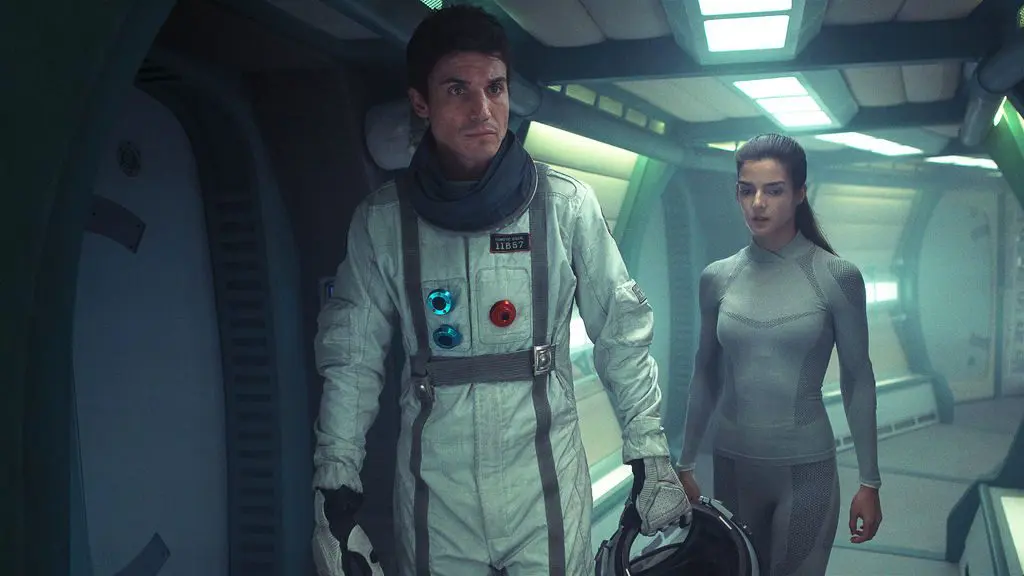[yasr_overall_rating size=”medium”]
Orbiter 9 tells us a story of the human condition, of love, life and the value of existence. Laboratory conditions can only monitor so much, numbers and statistics rule in the world of analytics. Set in the not so distant future Orbiter 9 is the story of how Helena, a woman brought upon a ship soon after birth, grew up inside the only home she’s ever known. During Helena’s time aboard the ship, she meets an engineer named Alex, the only other human (bar her parents) she has ever met. After falling in love, Alex fights to tell Helena the truth and expose her fabricated mission. Debuted on Netflix April 6, 2018.
Orbiter 9 is certainly a film open to interpretation. It could be a beautiful rendition of humanity, nuanced to the endearment of human desire. On the other hand, Orbiter 9 can easily be interpreted as monotonous, a lack of variety and slow progression leading to an easily distracted viewer, like reading a page of a book but having to read a second time to actually take in what you saw. Unfortunately, as the viewer, I was the latter. Although I can admire the analytical approach and appreciate the narrative content, I found my mind wandering onto other trains of thought.
Orbiter 9 certainly has it’s faults but lets cover the positives first. Helena and Alex are played by Clara Lago and Álex González. Lago demonstrates a delicate and naive Helena, tentative and innocent in mind; Lago’s character superbly conveys the result of human isolation. González also establishes authentic partiality to his new love interest, falling quick and fast while portraying a charmingly raw and childlike devotion towards the character Helena. The two as a pair surely do lead the viewer to yearn for their successful escape from the perils and selfishness of human curiosity.
Orbiter 9 also succeeds visually, with attention to detail and sophisticated costume; viewers are immersed into the ship in which Helena resides. Tones of cool blue and grey lay the foundation for a palatable and simplistic sci-fi environment. Overall Orbiter 9 is a pleasantly aesthetic film, although I would argue a sugar coating for lack of substance and feeling.
Orbiter 9, although curious in it’s intentions and far from being worthless in meaning, fell flat too many times. The pacing in this film is incredibly dull, reluctant in momentum and stagnant in sequence. Unfortunately, a film not intended to keep you on your toes, arguably this may suit some viewers; time to process and question the offered morals and animus excuses. It can’t help but be felt that this story would be suited to a short film format; the concept is intriguing but not substantial enough to hold interest and attention for 94 minutes. Extended shots of cars, walking and facial expressions felt unnecessary and unnatural throughout, adding to a forced sense of time filling.

Orbiter 9 asks important questions of human sacrifice and manipulation. How far does humanity go to possibly save the future of the entire human race? Many themes of experimentation, misinformed consent and fabricated security offer viewers a chance to challenge their own moral compass. A fascinating look into the world of science and human Guinea pigs, leaves you to wonder if the sacrifice of a few to save the many is worth it, in the hopes of progress that brings with it the amelioration of the human race.
To conclude, Orbiter 9 was not overwhelming, proficient in aesthetic and acting, yet faltering in pace and narrative. A satisfactory demonstration of human worth and a surprisingly provocative challenge of personal bias vs. catastrophic consequence. A film worth a look, if not just to encourage self reflection and gain an inquisitive look into the utilitarian project that is Orbiter.



